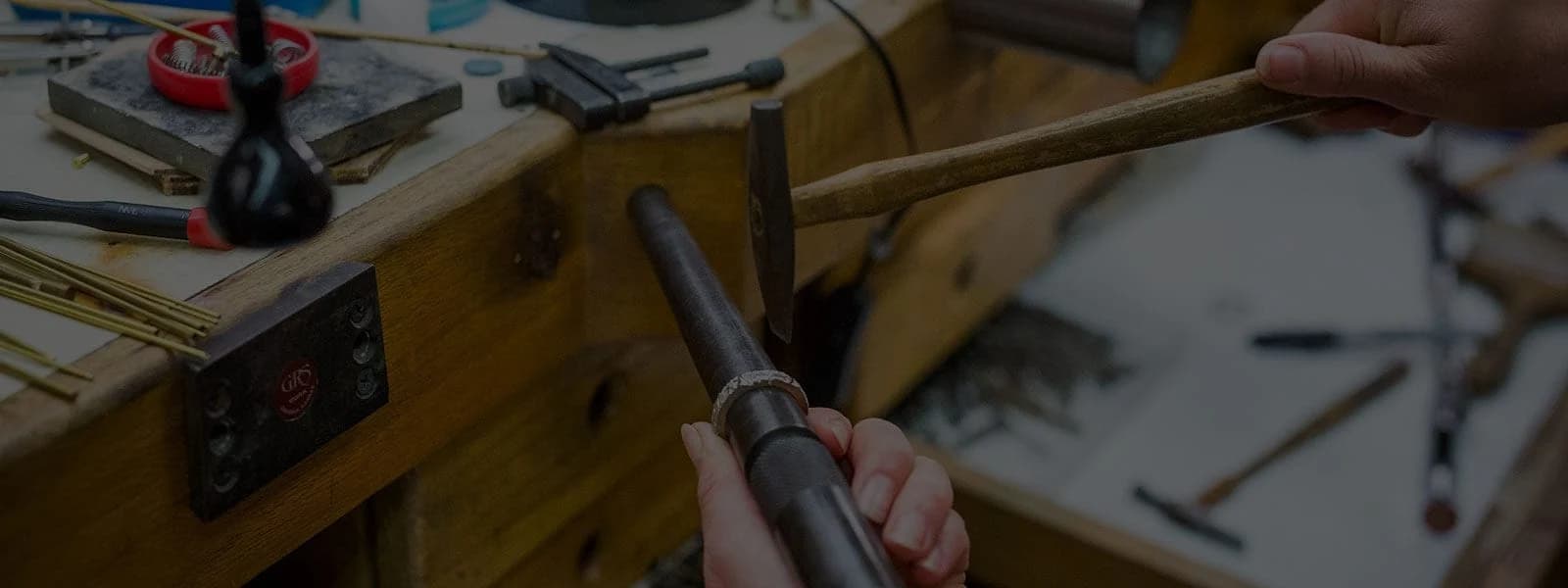
Structuring for Efficiency in the Studio
Being more organized, and planning how you use your time will mean that you will spend less time on some jobs and you will therefore have this time available. I tell my students that they need to plan their time and work fast, smoothly and efficiently not for its own sake, but to have more creative time available. This greater efficiency also translates into more income from your working day.
3 Minute Read
Making effective use of your time is a real issue for a working craftsperson. You want to have time for family and rest as well as for the studio and business. This means you need to be rather efficient in your time usage. And that, in general, means more organized.
Structuring for Efficiency in the Studio
Being more organized, and planning how you use your time will mean that you will spend less time on some jobs and you will therefore have this time available. I tell my students that they need to plan their time and work fast, smoothly and efficiently not for its own sake, but to have more creative time available. This greater efficiency also translates into more income from your working day!
There are some side effects from becoming more organized, such as an increased sense of control in one's life.
Planning, and setting aside time for planning as a habit really seem to make a difference. Ten minutes in the morning planning the day and merely looking at short, medium and long term goals seem to help bring them about.
Make lists of your goals. List actions needed to move towards the goal. Make To-do lists in the morning. Remember that any improvement in your organization is a positive one.
Then there is the kind of time savings that can come from how you actually work in the studio, how you produce your craft.
Ever watched a pizza guy at work? He takes the dough ball, slams it down, whips it into the air and punches out a whirling pizza in moments. I call this the 'dance of production', and one only learns it in a factory job, a job so repetitive and boring that the only thing left to do is experiment with time and space, with how you move smoothly to perform a task, everything controlled and even and fast. Not to mention efficient. So, moving and organizing time and space to become faster is part of being more efficient.
Make things as easy as possible for yourself, so you have to do the least amount of work to get things done. The blacksmiths have a saying: "If you want a job done fast and smart then give it to the laziest guy in the shop". Or perhaps we should say the person who works most effectively.
Arrange the tools and working surfaces in your shop for the smoothest working process, the easiest, least stressful movements and procedures. Put things back in their places as soon as you finish using them. That's what surgeons, dentists and smart craftspeople do to work efficiently and safely. I heard of a young man who watched a glass cutter one day for a while, wondering that he returned each tool to its place as he used it. It seemed like an awful lot of extra work. Then he noticed this cutter was really fast in his working-faster than he would have been otherwise. Irritatingly, as one gets older, the things one's parents said make more and more sense. Phrases like "put things back where you found them."
Organizing a work space can have amazing results in terms of time saved. Mark Zirinsky describes a shop reorganization where the newly bare surfaces and organized tools resulted in a time reduction per object built from 20 minutes to eight minutes while allowing an increase in work breaks from a 1/2 hour a day to 1.25 hours per day. (Mark Zirinsky, Orchid list, 4/13/97, "Re: tidy bench").
Some jobs can be outsourced to make your day more efficient, and some things can be made easier by using a new piece of equipment.
Some people are 'morning people' or 'night people'. A teacher of mine would not set a gemstone after noon, as he claimed he was not sharp enough in the afternoon. Have a look to see when you are most productive. I think morning is probably the best time for most.
Look for role models, look for people who have solved the problems you are dealing with. See what ideas you can pick up from others. Make a game of looking for efficient options with yourself and a friend. Spend some time analyzing how you work to see if you can become more efficient and thus have more "Creative Time"!
Sidebar
Some Principles:
- Have the workplace intelligently laid out.
- Have the jobs ergonomically thought through, varied now and then, and psychologically rewarding.
- Make sure tools and materials are easy to get, have specific homes, and are well labeled.
- Put things back as you use them.
- Think about the task as a dance, how do you make it smoother?
- Use the right equipment for the right job. And don't forget your outsourcing options.

The All-In-One Jewelry Making Solution At Your Fingertips
When you join the Ganoksin community, you get the tools you need to take your work to the next level.







